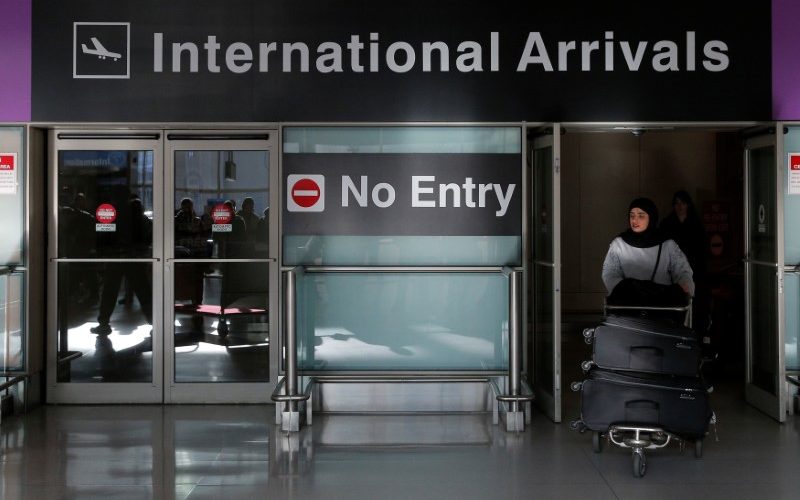The executive travel ban is one of the first things that President Donald Trump did, the first ban was instantly challenged and there were over two dozen lawsuits filed against it. The proposal was put on hold by court order. A revised travel ban was signed by the president later on, and it is supposed to go into effect on March 16th.
The revised ban removed Iraq from the list and people who already hold visas or are permanent residents will not come under the purview of the ban either. Right now over a half dozen states are trying to put a stop to the ban even before it goes into effect. Judges in Washington, Maryland and Hawaii will be hearing challenges against the revised ban today.
According to the White House the travel ban is necessary for national security, but critics see it as a move to block Muslims immigrants from entering the country and deem it as discriminatory and hence unconstitutional.
Federal District Judge James Robart will be holding a hearing in Seattle. The case here is brought by 4 citizens who believe that the ban will make it hard for their family members to get US visas. Incidentally Robart has earlier ruled against the original travel ban and his rule was upheld by the Appeals court as well.
In Maryland the Trump administration is being sued by two refugee rights group in collaboration with the American Civil Liberties Union and the National Immigration Law Center. The revised ban puts a stop to the US refugee program for 120 days and the limit to the number of refugees that US will accept has been brought down to 50,000 compared to the earlier limit of 110,000.
In Hawaii the state of Hawaii and a local Muslim resident are the plaintiffs. They argue that the ban is discriminatory against Muslims. Hawaii also claims that the ban will effect tourism and negatively impact the state’s tourism.
(Writing by Ananya Dutta; Editing by Mohith Agadi)
















